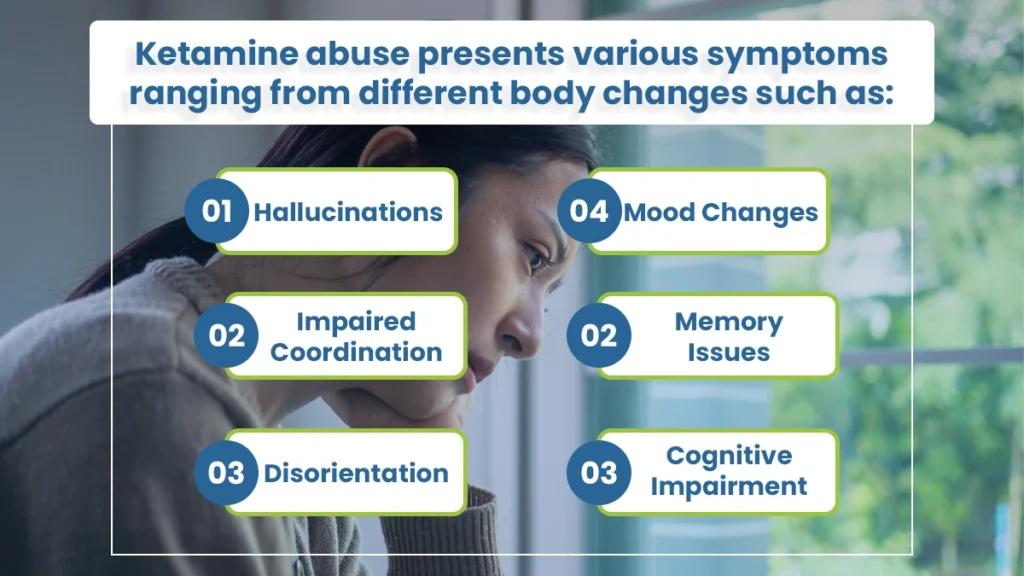Ketamine Abuse Treatment
Ketamine, a powerful anesthetic often used in medical settings, is gaining notoriety for its misuse. This substance, classified as a dissociative drug, alters perception and induces a dream-like state.
In recent years, its recreational use has surged, leading to concerns about abuse. People seek its hallucinogenic effects, but prolonged misuse can result in significant health risks.
Learning these dangers is vital, as ketamine abuse poses serious public health challenges in the United States. Increased awareness and education are essential to curb the rising trend of recreational ketamine use.
Treatment Services
Addressing ketamine abuse requires a comprehensive approach that combines medical, psychological, and behavioral interventions. Treatment services tailored to the individual’s needs are vital in promoting recovery.
Medical professionals may use medications to manage withdrawal symptoms and cravings, while therapy sessions help address underlying issues contributing to abuse. Engaging in support groups and counseling fosters community and encourages sustained recovery.
Key Takeaways
Ketamine, a powerful anesthetic often used in medical settings, is gaining notoriety for its misuse. Here’s what you need to know:
- Ketamine abuse presents various symptoms ranging from different body changes.
- Social factors like peer pressure and the desire for belonging can contribute to initial use.
- Addressing ketamine abuse necessitates a multi-faceted approach for a successful recovery.
The Haven Detox-New Jersey offers comprehensive services for those on their journey toward recovery from substance abuse. Call us at (856) 666-2441 to find out more.

Symptoms of Ketamine Abuse
Ketamine abuse presents various symptoms ranging from different body changes. The symptoms carry:
- Hallucinations: Ketamine abuse often leads to distorted perceptions, where individuals may see, hear, or feel things that are not real.
- Impaired Coordination: The drug affects motor skills, resulting in difficulties with movements and coordination.
- Disorientation: Ketamine can induce a feeling of being disconnected from reality, causing confusion and disorientation.
- Mood Changes: People may experience shifts in mood, ranging from anxiety and agitation to euphoria and relaxation.
- Memory Issues: Prolonged ketamine abuse can impact memory, leading to difficulties in recalling information.
- Cognitive Impairment: The drug may affect mental functions, including attention, problem-solving, and decision-making.
- Increased Heart Rate and Blood Pressure: Physical symptoms such as a rapid heartbeat and elevated blood pressure may manifest.
- Compulsive Use: Individuals may find themselves compelled to use ketamine regularly, even when it interferes with daily life.
Identifying these symptoms is crucial for early intervention and seeking appropriate treatment to address the effects of ketamine abuse.
When to Seek Treatment
Seeking treatment for ketamine abuse should not be delayed. If you or someone you know experiences persistent psychological or physical symptoms related to ketamine use, it is necessary to reach out to healthcare professionals.
Early intervention improves the effectiveness of treatment and minimizes potential long-term consequences. If recreational use transforms into a compulsive pattern, negatively impacting daily life, seeking professional help becomes imperative for a healthier future.
If a Loved one Needs Support
Approaching a loved one about their ketamine abuse can be challenging, but it is essential for their well-being. Expressing concern non-confrontationally and offering support can encourage them to seek help.
Encourage open communication and be prepared to assist in finding suitable treatment options. In some cases, staging an intervention with the guidance of professionals may be necessary to convey the seriousness of the situation and motivate them to accept help.
Causes of Ketamine Abuse
Learning the causes of ketamine abuse is essential for prevention and intervention. Social factors like peer pressure and the desire for belonging can contribute to initial use. Escapism, driven by stress or emotional struggles, is another common factor.
Moreover, individuals with a history of trauma or mental health issues may turn to ketamine as a coping mechanism. Increased awareness of these underlying causes enables the development of targeted prevention strategies.
Risk Factors of Ketamine Abuse
Certain factors increase the risk of ketamine abuse. Young adults, often seeking novel experiences, may be particularly susceptible.
People with a history of substance abuse or addiction in their families face a higher predisposition. Mental health conditions, especially those involving anxiety or depression, elevate the likelihood of seeking ketamine as a means of self-medication.
Additionally, a permissive social environment and easy access to the drug contribute to the growing prevalence of ketamine abuse. Recognizing these risk factors allows for targeted educational efforts and preventive measures.
Effects of Ketamine Abuse
Ketamine, also known as Special K, is a dissociative anesthetic with both medical and recreational uses. In lower doses, it is FDA-approved for medical purposes, such as anesthesia and pain relief, particularly in veterinary medicine. However, misuse of ketamine, often in higher doses, can lead to a span of adverse effects.
Abuse of ketamine is associated with various street names like K-hole when taken in higher doses, inducing an out-of-body experience. Chronic ketamine abuse may result in cognitive impairment, short-term memory loss, and even near-death experiences. It is crucial to note that ketamine is sometimes misused as a date rape drug due to its ability to cause trance-like states.
In terms of treatment, cognitive behavioral therapy is employed for individuals struggling with ketamine abuse, especially in cases of treatment-resistant depression. Ketamine overdose poses serious risks, affecting mental health and physical well-being, while long-term abuse can lead to infectious diseases and urinary tract problems.
Awareness of ketamine’s effects, both in medical and non-medical contexts, is essential to address its increasing misuse and its potential impact on public health in the United States.
Treatment of Ketamine Abuse
Addressing ketamine abuse necessitates a multi-faceted approach. It ensures individuals receive tailored care for a successful recovery. Here are key elements in the treatment process:
Medical Detox: Medical detoxification, under the supervision of healthcare professionals, helps manage withdrawal symptoms as the body adjusts to the absence of ketamine. This phase ensures a safe and comfortable transition to subsequent treatment steps.
Inpatient Residential Rehab: Inpatient residential rehabilitation provides a structured atmosphere for individuals to focus solely on recovery. With 24/7 support, therapy sessions, and a drug-free setting, it helps break the cycle of ketamine abuse, addressing both physical and psychological aspects.
Behavioral Therapies: Behavioral therapies play a pivotal role in treating ketamine abuse. Cognitive behavioral therapy (CBT) helps individuals recognize and modify harmful thought patterns and behaviors linked with substance abuse. Motivational enhancement therapy (MET) and contingency management are additional effective approaches.
By combining medical detox, inpatient rehabilitation, and behavioral therapies, individuals receive comprehensive care addressing the physical and psychological aspects of ketamine abuse. Customizing treatment plans based on individual needs enhances the likelihood of sustained recovery, supporting individuals in reclaiming their lives from the impact of ketamine misuse.

